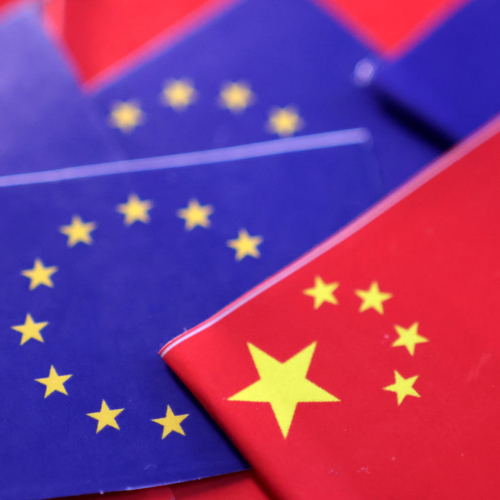A classified German Foreign Ministry report has revealed that the European Union believes China is responsible for around 80 percent of the efforts to help Russia bypass international sanctions. These sanctions were put in place after Russia’s invasion of Ukraine, aiming to limit Moscow’s access to goods that could support its war effort.
At a high-level meeting in Brussels earlier this month, EU Sanctions Commissioner David O’Sullivan told other officials that while the sanctions have hurt Russia’s economy, many of the banned goods are still reaching the country — largely through China, including Hong Kong. The report summarizing this meeting was seen by the German newspaper Sueddeutsche Zeitung and two state broadcasters, NDR and WDR.
The report points out that Russia is still receiving items that can be used for both civilian and military purposes, called dual-use goods. Many of these come from or pass through China, making enforcement of the sanctions more difficult. Despite these findings, Chinese officials continue to deny involvement in helping Russia dodge the restrictions.
China Defends Pakistan’s Terror Architects—IC-814 Hijacker’s Brother Escapes Sanctions
China and Ukraine in War of Words Over Supply Accusations
On May 26, Ukraine’s Foreign Intelligence Service accused China of continuing to supply Russian defense factories with goods used to make military equipment. These goods may not be weapons themselves but can help Russia build and support its military operations. Ukrainian officials say this flow of supplies is keeping Russian military industries running, despite international sanctions.
China’s Foreign Ministry spokeswoman Mao Ning responded the next day, on May 27. She strongly denied the accusations, saying, “China has never supplied lethal weapons to any party to the conflict and strictly controls dual-use goods.” Mao also criticized the claims as “groundless accusations and political manipulation.” She said Ukraine fully understands China’s neutral position and its rules around exports.
Despite the denial, European leaders are concerned. The German Foreign Ministry’s report, based on discussions held during the EU Foreign Affairs Council meeting on May 20, suggests that China’s role in sanctions evasion is significant and ongoing. Officials say that without cooperation from countries like China, the sanctions cannot be fully effective.
End of the Free Package Era? G-7 Moves to Shut Down China’s Zero-Tariff Exports
UAE, Turkey, Kazakhstan — And Even Europe — Involved in Loopholes
The report doesn’t stop at China. It also names Kazakhstan, Turkey, and the United Arab Emirates (UAE) as countries where similar problems exist. These nations are believed to be used as middle points to send restricted items into Russia. While the UAE claims its exports to Russia have stopped, trade statistics do not support that claim, the report notes.
Adding to the challenge, the EU is also facing issues from within. According to the report, some European companies are themselves helping with sanctions evasion, either knowingly or by ignoring red flags. This not only weakens the enforcement of the sanctions but also damages the EU’s credibility when asking other countries to tighten their own controls.
The revelations about widespread sanctions evasion come just days after the EU approved new duties on Russian and Belarusian nitrogen fertilizers. These tariffs are part of a plan to phase out those imports over three years. At the same time, European leaders are warning Moscow that if it does not agree to a proposed 30-day ceasefire — put forward by the United States — the EU may approve an 18th round of even harsher sanctions.


